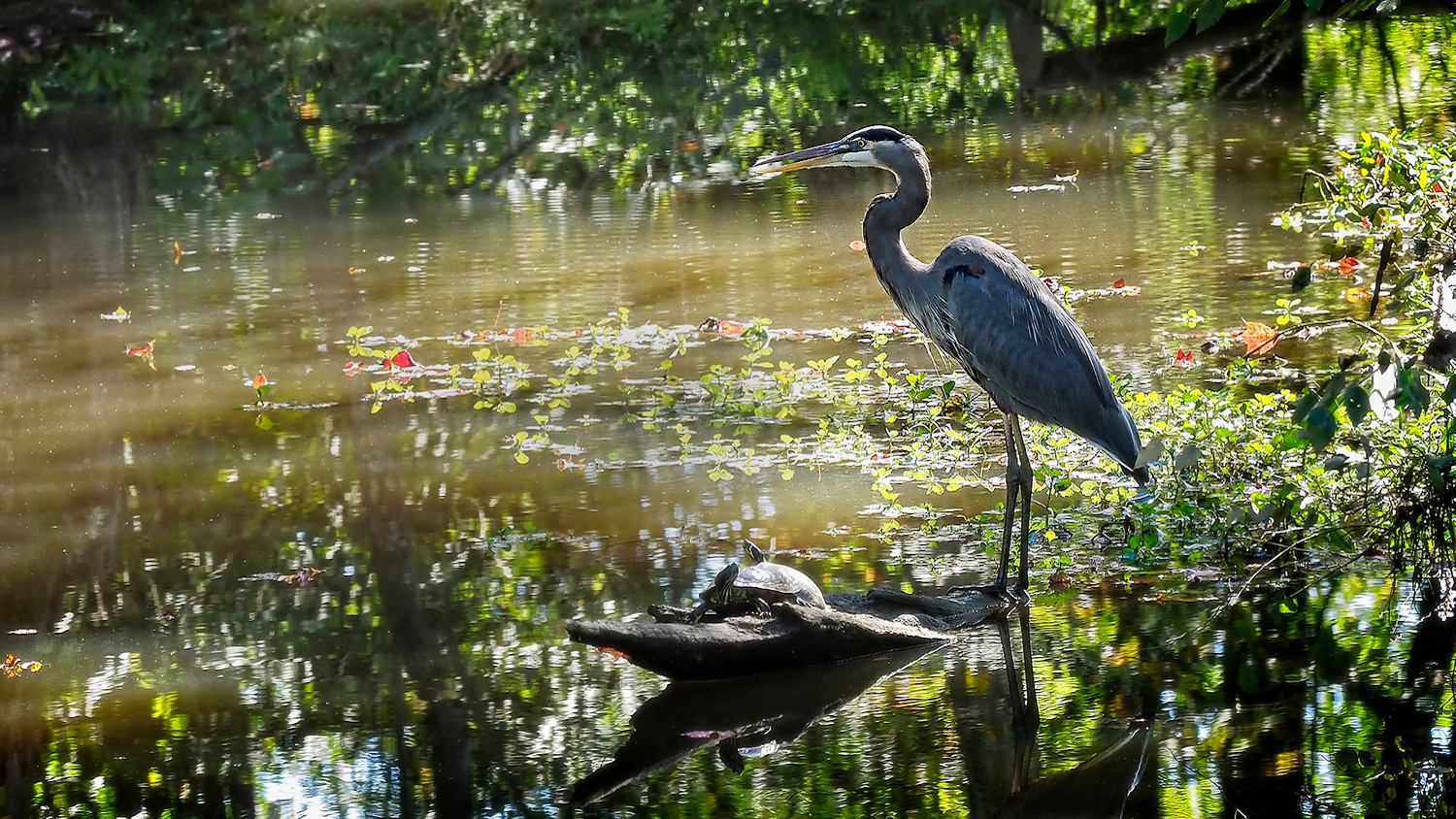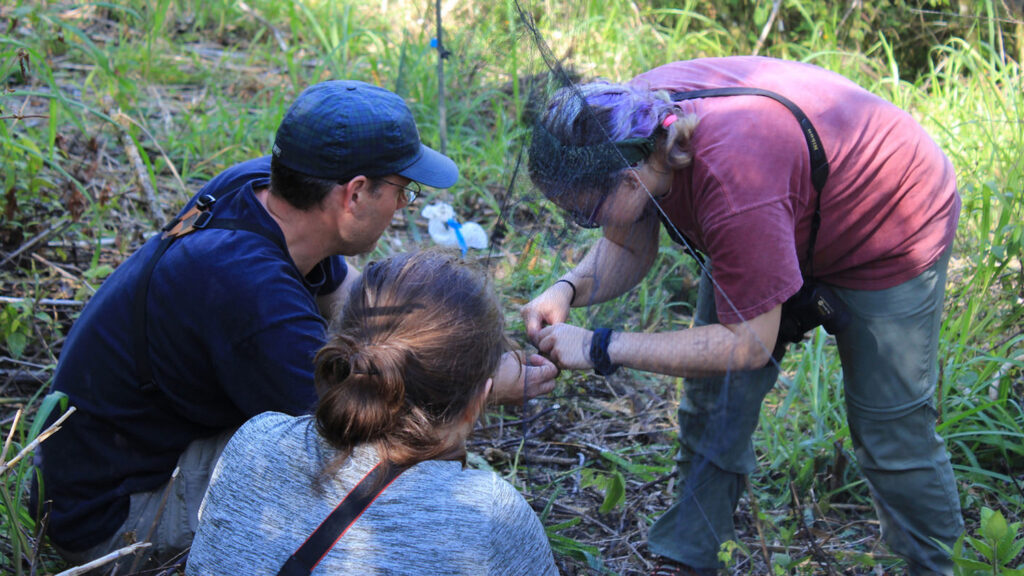Ecology Wildlife Foundation Establishes Three Funds to Support Conservation Research

The Ecology Wildlife Foundation Fund in Asheville, North Carolina, has established three new funds that will support an undergraduate scholarship, graduate fellowship and distinguished professorship in the College of Natural Resources.
The undergraduate scholarship and graduate fellowship will support students pursuing a degree in fisheries, wildlife and conservation biology. The distinguished professorship will support a professor in the Department of Forestry and Environmental Resources, with preference given to faculty with active research in fisheries, wildlife and conservation biology focused on global change and wildlife conservation.
“The three gifts from the Ecology Wildlife Foundation — the scholarship, fellowship and distinguished professorship endowments — individually and as a whole are transformative for the fisheries, wildlife and conservation biology program at NC State University. As human influence on the planet expands, we need to expand resources to address the associated environmental challenges, including those related to conserving wildlife. The gifts’ emphasis on teaching students and supporting research related to global change and wildlife conservation will allow the College of Natural Resources at NC State to be a global leader in developing practical solutions to conserve wildlife now and into the future,” said Christopher Moorman, professor and interim associate head of the Department of Forestry and Environmental Resources.
By supporting individuals at various stages of academia, the college and the Ecology Wildlife Foundation Fund envision that these resources will enhance the spirit of collaboration, mentorship and scholastic support among students and professors with interest in human-induced environmental change, including climate change and urbanization, that affect wildlife and their habitats.
“Brook shares our college’s vision that healthy ecosystems are vital to healthy communities, and that wildlife and conservation biology majors are needed now more than ever. By supporting faculty members, graduate students and undergraduate students working in teams, with each level helping to inspire and guide the one coming behind in a ladder of mentoring, she is contributing in the best possible way to training these professionals. Her gift will have a profound impact on our educational programs and our world,” said Mary Watzin, professor and coastal resilience and sustainability coordinator in the Department of Forestry and Environmental Resources.

The Ecology Wildlife Foundation was founded in 1999 by William N. Reynolds II to promote ways of living in harmony with nature by supporting organizations in North Carolina that encourage environmental conservation and education. In 2017 the foundation transitioned to a donor advised fund under the same name, with his daughter Brook Reynolds continuing to provide direction as the advisor.
“My father’s mission for the Foundation was to support the symbiotic relationship of wildlife and mankind. Conservation and education were always important to him, but especially education. As I personally got to know some of the professors in the program and learn more about the college, it became more evident that NC State was a natural fit for my father’s vision, and mine,” Brook Reynolds said.
William Reynolds, who passed away in 2009, was a 1961 NC State graduate, conservationist and hunter. He served in the Coast Guard and was instrumental in founding Forsyth Country Day School in Lewisville, North Carolina, where he donated approximately 30 acres of land for the school’s permanent site. He was a member of the North Carolina Marine Fisheries Commission and the Tanglewood Park Board in Clemmons, North Carolina.
Reynolds’ sincere love of nature was most profoundly expressed in his efforts to preserve the Mitchell River, which is one of the few remaining outstanding resource waters in North Carolina. He loved his mountain home at Devotion, North Carolina, where he taught his family to appreciate the truth and beauty of the natural world.
“My father was very deliberate about including both ecology and wildlife in the name of his Foundation. He was influenced by Eugene Odum’s book, ‘Fundamentals of Ecology,’ and wanted to focus on the importance of healthy and diverse wildlife populations in an ecosystem. It wasn’t just about hunting to him. Each animal has its role to play, including humans,” Brook Reynolds said.
“I believe everything is interconnected and interdependent. Change in one part of a system will affect other parts, and research in conservation biology helps us to understand changes in ecosystems. Global change is an important area of study that encompasses many different planetary systems, including climate systems, economic systems and social systems. Each system affects the others in a complex web of existence. I see outstanding opportunities for interdisciplinary study and collaborative research in global change,” she added.
- Categories:


